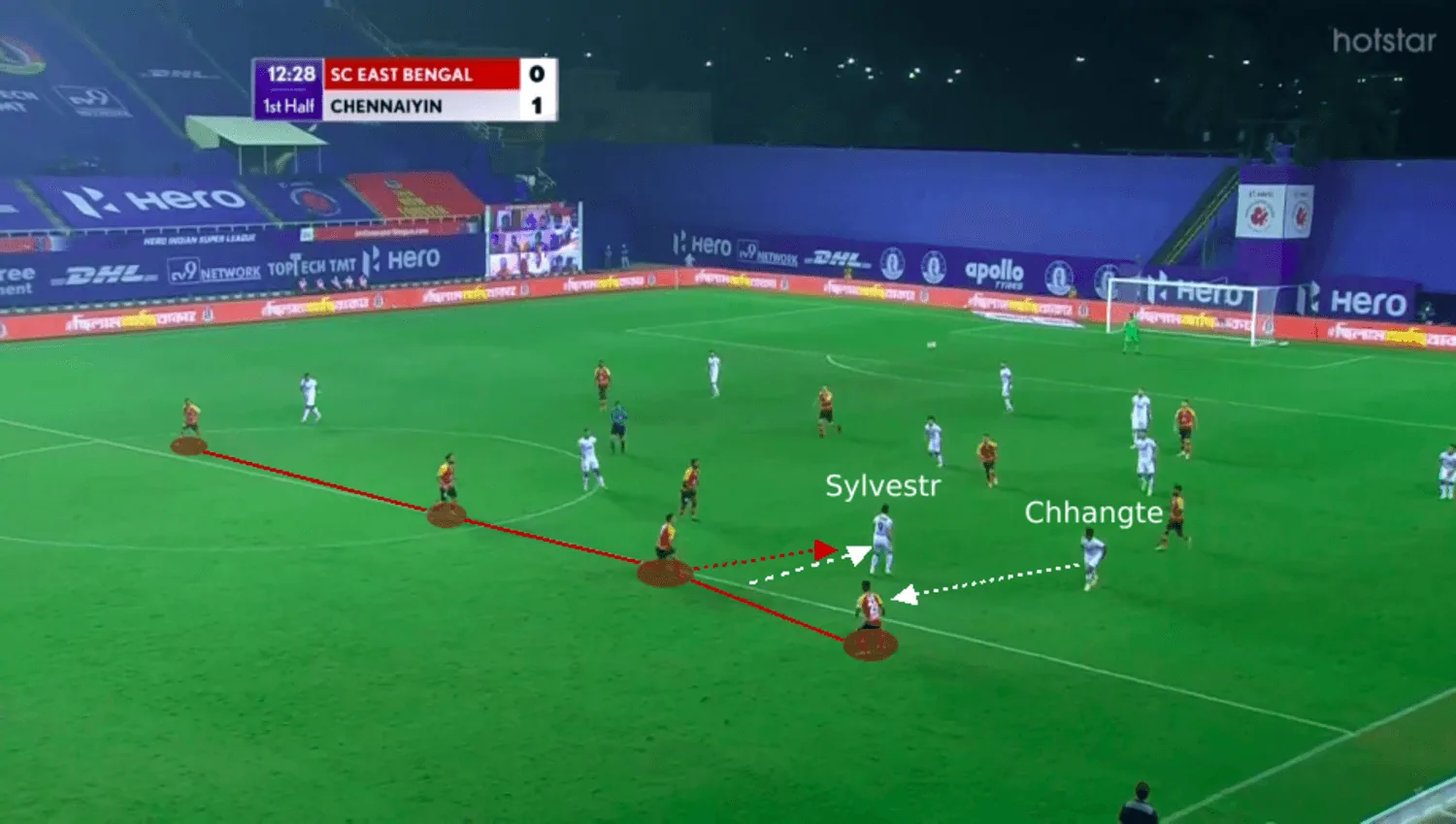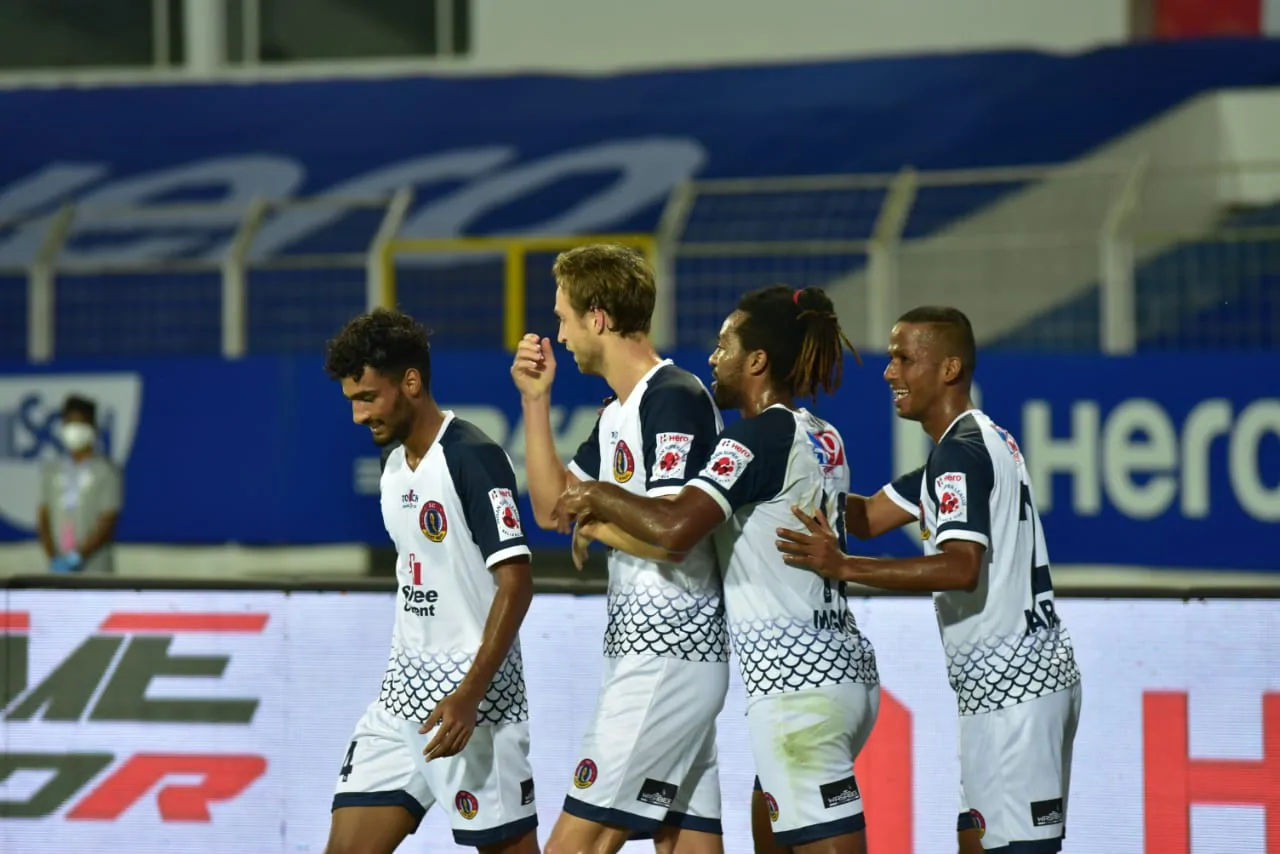Sylvestr’s Movement
Jakub Sylvestr’s movements follow the lines of the concept of the false-nine. The striker moves backwards and away from goal, dragging one or perhaps even two centre-backs with him and creating space in behind them for the wingers to run into. Here is a simplified animation depicting that.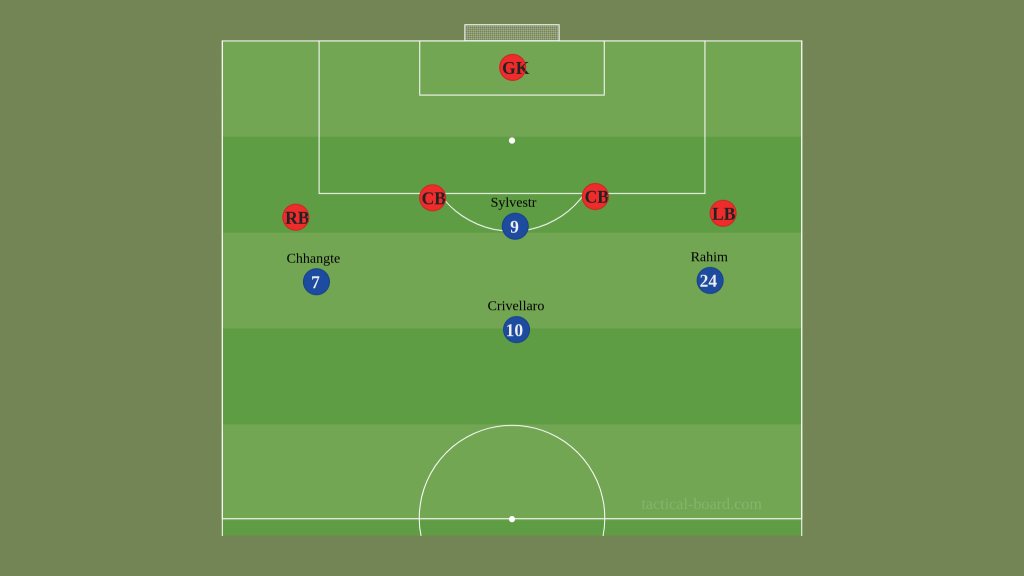
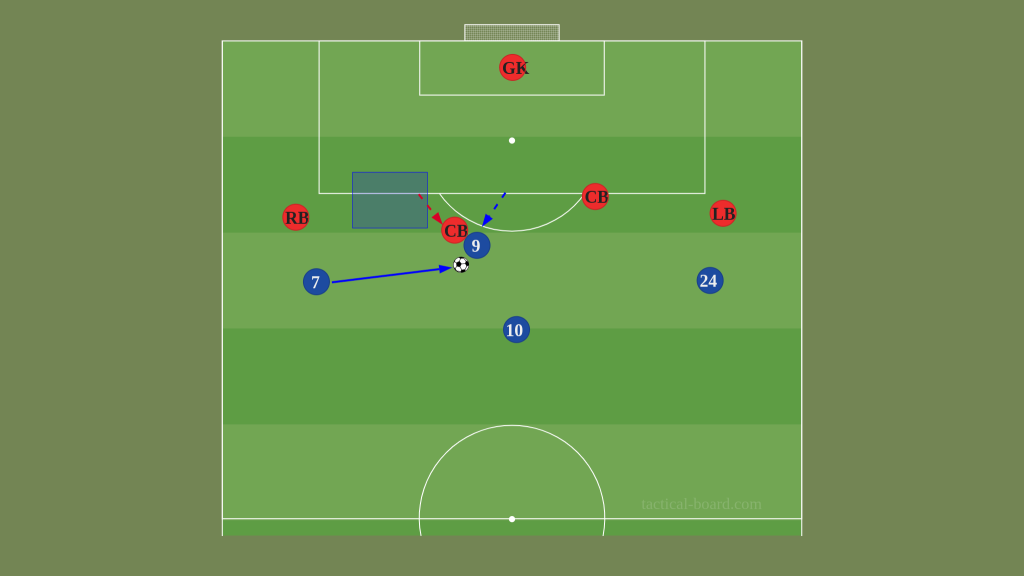
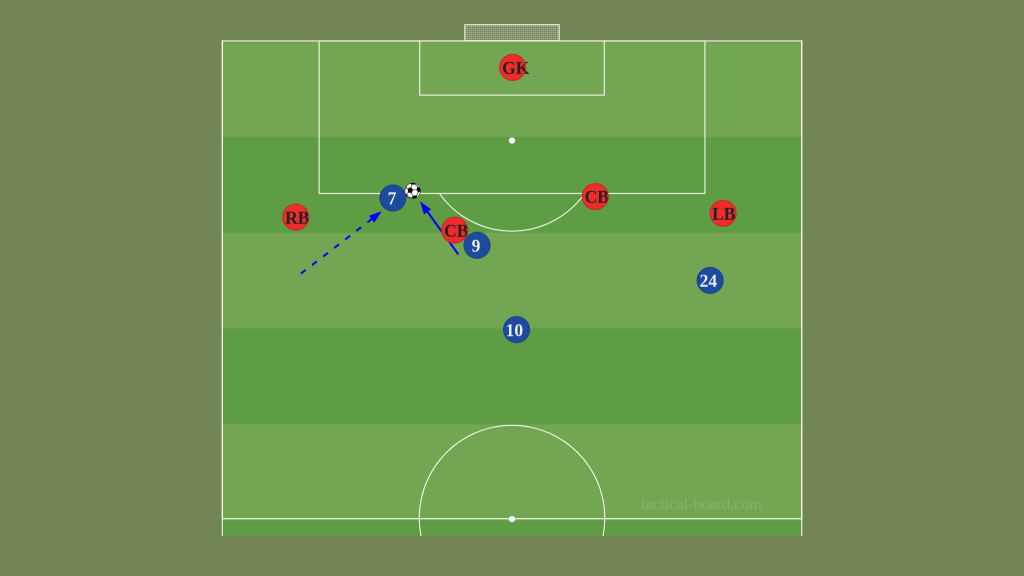
Sylvestr’s Chance Creation
So far this season, Jakub Sylvestr has averaged 2.8 key passes per match. At the time of writing, he has created 7 chances, including 3 big chances, in his last two appearances. While the ex-Paderborn man has under-performed his xG by over 3, he has made up for it with his xA. Here are a few examples of his playmaking work: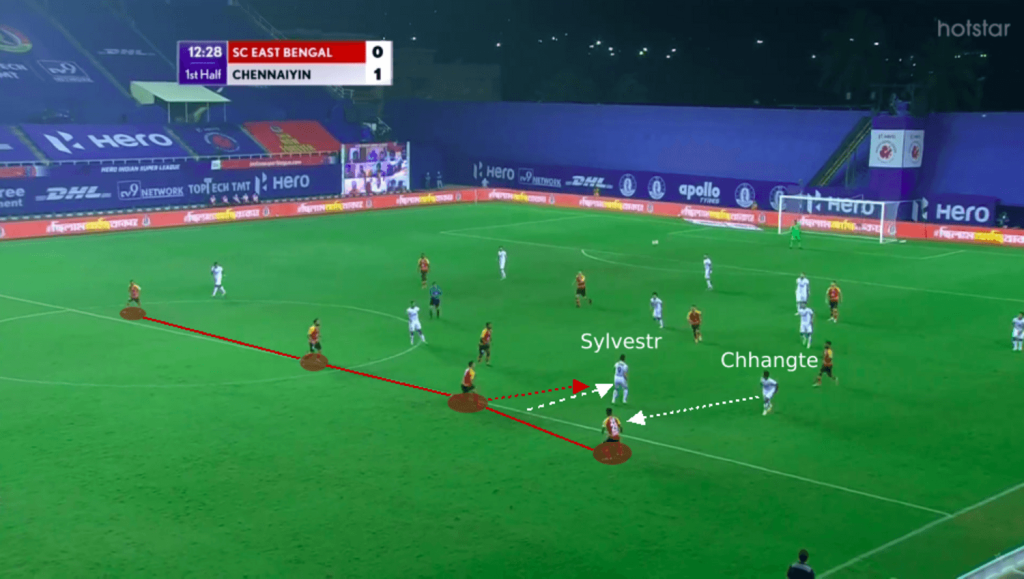
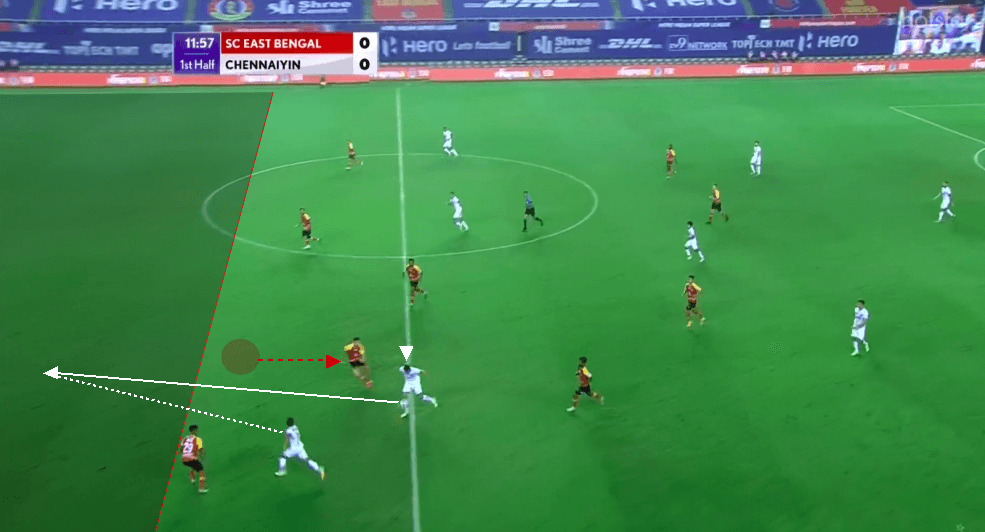
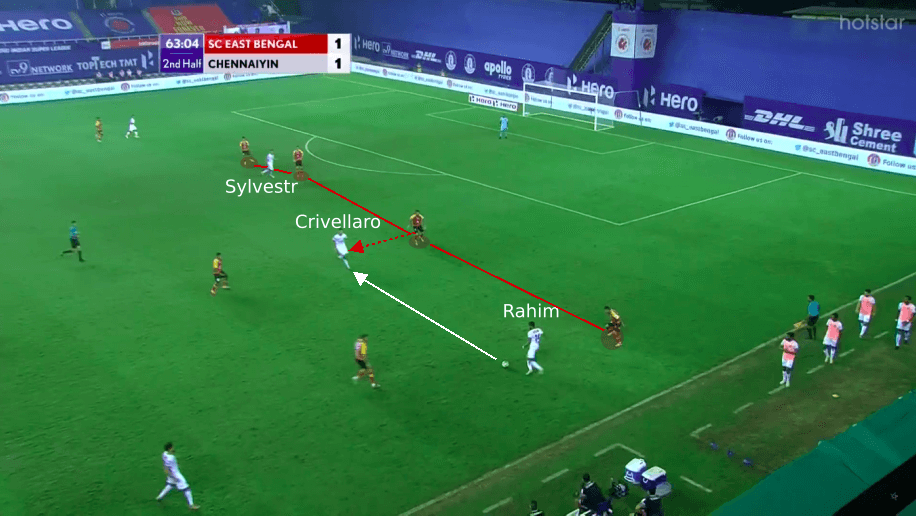
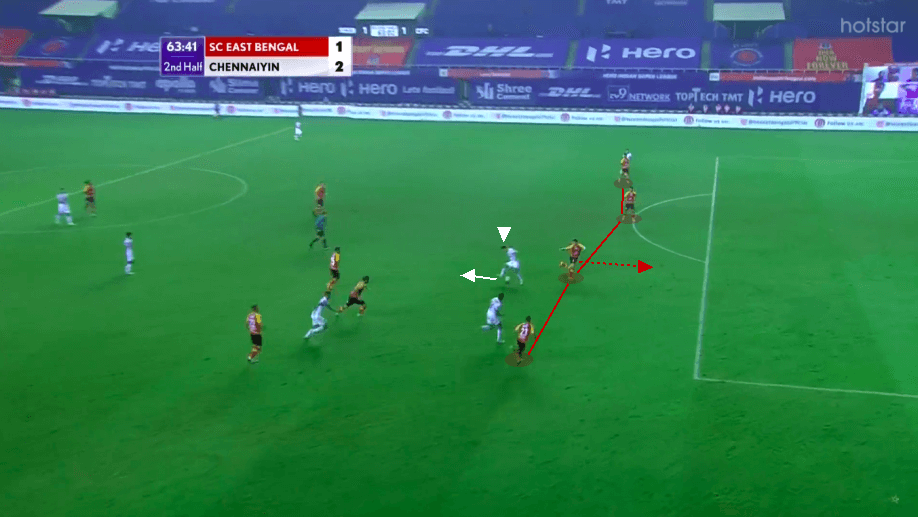
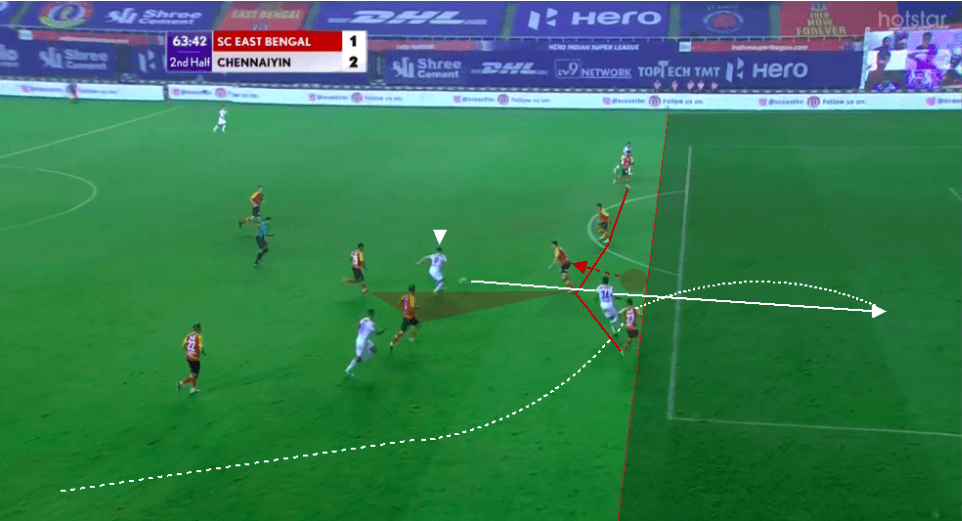
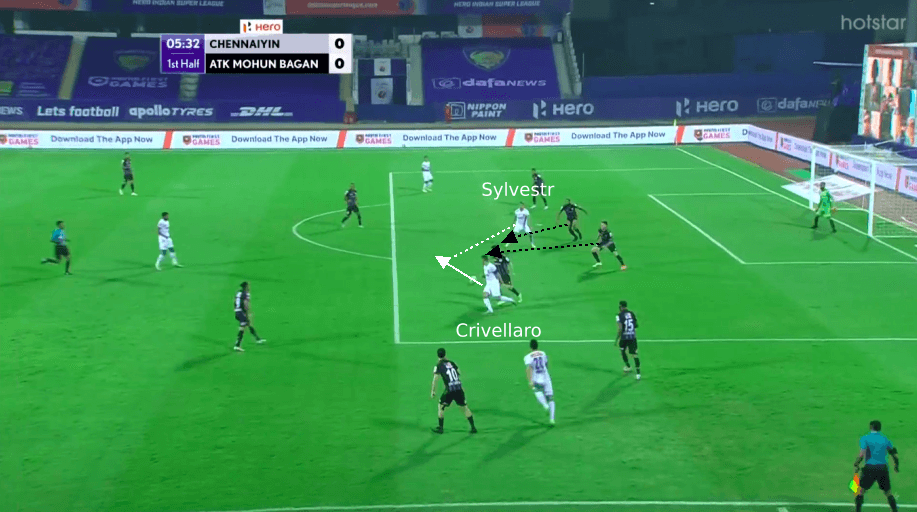
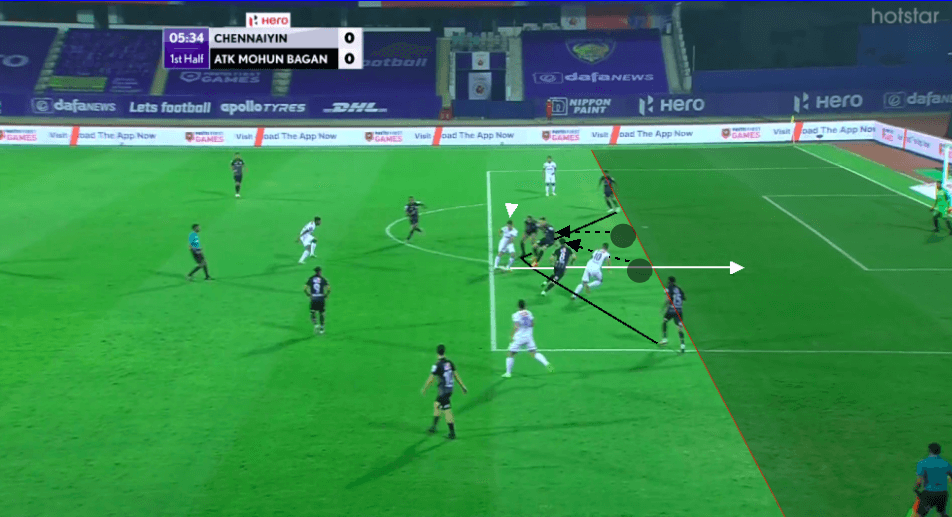
Conclusion
Jakub Sylvestr has received a lot of criticism for his finishing, or more precisely, lack thereof, but he continues to start for Chennaiyin FC. There is good reason for that, since his movement and creativity help cause all sorts of problems for opposition defenders, and this helps bring the other Chennaiyin attackers to the forefront of the action. Chennaiyin FC clearly have all the ingredients to assemble an unstoppable attack, but the only seasoning they are lacking to complete it is finishing, where not only Sylvestr but all the other attackers fail. If they can add that, the Marina Machans will become a real force to reckon with.Add Sportslens to your Google News Feed!
